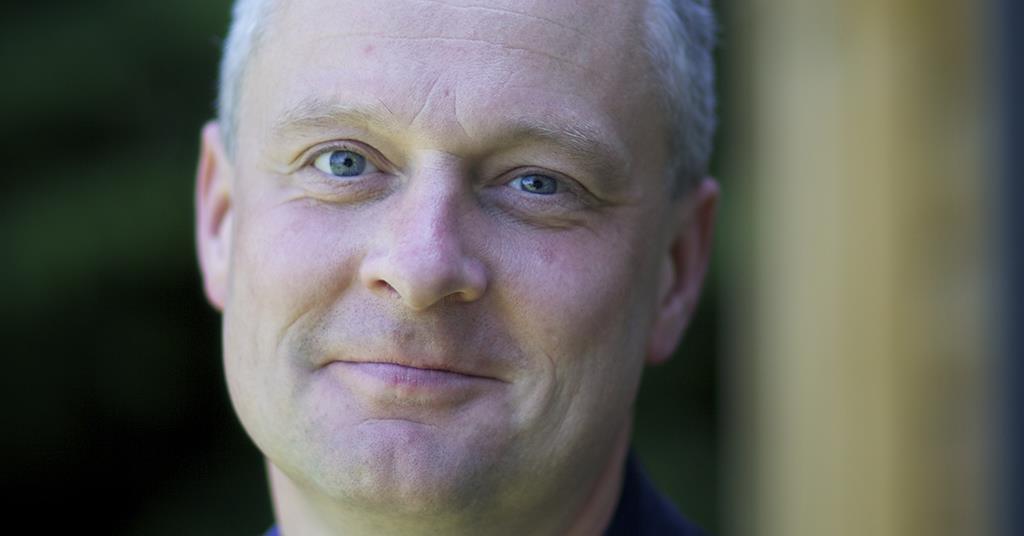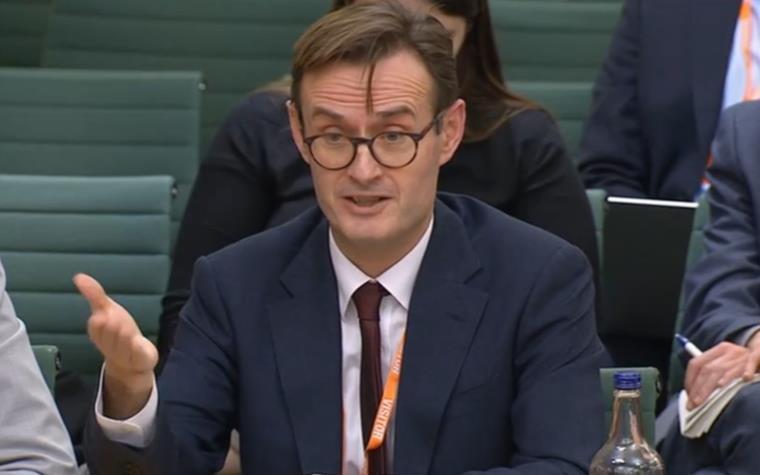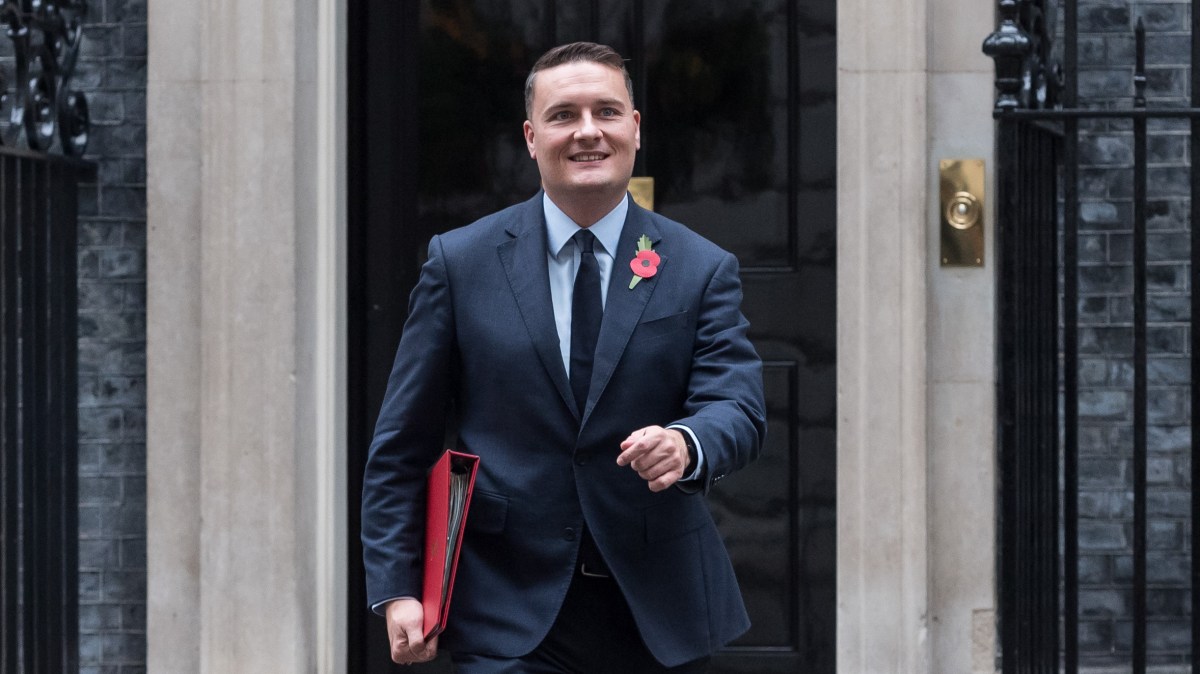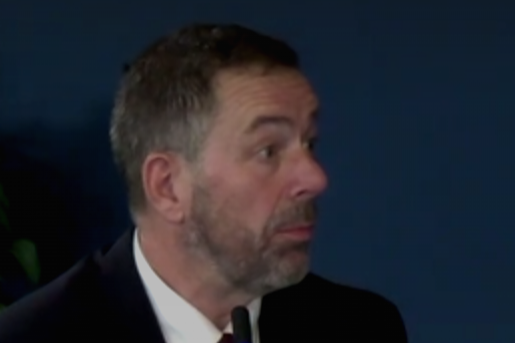Cowper’s Cut 351: Inflation in the price of financial lying


I wrote about the price of financial lying in 2019, all the way back when this column used to run in Health Service Journal.
Since then, we have seen hyperinflation in the price of financial lying: we just haven’t yet got the bill for 2024-25.
But as I keep pointing out, it’s coming.

This week, HSJ’s Zoe Tidman reported from Monday’s evidence session in front of the Commons Public Accounts Committee. NHS England’s director of finance Julian Kelly was front and centre, making the bold claim that “I don’t recognise some of the things said around financial fantasy plans”.
Mr Kelly told the PAC, “you [the local NHS organisation] have given us a plan, you have signed it off at your board, we have discussed it in depth. Our expectation is if you as a board have signed it off, you are serious about doing it, and you have thought hard that the thing you have given to us, you can do. Our expectation is as long as we honour the things we have said we will do — which we have done — that people will do what they say they will do.”
“ … I am not saying anyone is necessarily fantasy planning. I am saying if they have seriously sat down and said what they can do, and we look at it and examine it and challenge them on it, then they have agreed that is what they are going to do.”
“Therefore we sit down and hold them to account to follow it through”.
NHS England follows through
I’m not sure there could be anything more appropriate than for NHS England’s director of finance to be talking about following through.
But is Mr Kelly talking sense about proposed fiscal rectitude?

Ahem.

The point here is that members of the Reality-Based Community are no longer bothering to waste their time with debating the assertions being made by the NHS England senior leadership.
NHS England’s leadership could be described as a joke, but jokes are funny: let us restrict ourselves to ‘unserious’.
It is now very much a case of waiting for the year-end overspend to reveal that NHS England’s national leadership is, as the saying goes, “broken”.
Fighting the rhetoric
David Walker was a fine Guardian journalist; then a fine communications director of the Audit Commission, and is today chair of Oxford Health NHS Foundation Trust.

And HSJ’s Mimi Launder spotted that the trust had issued board papers with a chair’s report featuring some very robust comments from David about the “broken” rhetoric, and other matters. They were then pulled from the interweb, but not before having been grabbed and copied.
Mr Walker told colleagues that “no one underestimates the difficulty of working in the NHS these days, the pressure of demand and shortfalls in staffing and capital investment. But being stretched is not being ‘broken’, to use that unfortunate ministerial phrase …
“Wes Streeting … has taken to sounding like a merchant of doom. He should ease up on the mantra of ‘reform’ – the malignant effects of the 2012 Health and Social Care re-disorganisation are still being felt.”
Mr Walker’s “chair’s report” paper also criticised Mr Streeting’s declarations this month promising more “league tables” and to “sack… persistently failing managers”, as well as aiming “to resurrect another golden oldie – what was called ‘targets and terror’” whereby “trusts that do not deliver are named and shamed, their senior managers (and chairs) lambasted and sacked.
“Last time round [in the 2000s] this type of centralised management of the NHS was combined with a big inflow of funds and people; applying it while saying the NHS is not going to get any significant increase in resources will not work”.
David’s an old pro: he knows the game well. This was wildly un-accidental, and can be viewed as an interesting first public challenge to the Alan Milburn tribute act ‘reform-or-die’ rhetoric which has been so prevalent over these past few months.
A soufflé of rotten apples

Health But Social Care Secretary Wes Streeting announced the next front in his crackdown on NHS managers shortly after the last ‘Cut’ published, briefing Eleanor Hayward of The Times the regulation will ends the careers of NHS managers who silence whistleblowers.

The appearance of Tony Chambers, the Countess Of Chester’s chief executive during the Lucy Letby era at the public inquiry this week, was no doubt 100% coincidental. Likewise that of Chambers’ successor Susan Gilby, at her employment tribunal case against COC on the grounds of her allegations of serious bullying by the chair Ian Haythornthwaite.
Only a soufflé of rotten apples can save us now, possibly.
On not screwing mental health
The second reading of the draft Mental Health Bill in the Lords this Monday saw an intervention from Lord Stevens of Birmingham: the artist formerly known as The Messiah and the Sun King Of Skipton House, Simon Stevens.
The noble Lord Stevens has not lost his touch, as the following extract from his contribution shows: “the new detention criteria for people with learning disabilities and autistic people may start in 2026-27, but next to a little asterisk is written ‘This timeline is highly indicative as an illustration for modelling purposes. This reform will commence once systems are able to demonstrate sufficient levels of community support for people with a learning disability and autistic people as an alternative to hospital-based care’.
“ … we have been waiting for that for some long years. My concern is that we run the same risk here as we saw with, say, the implementation of the Dilnot reforms: something sits on the statute book but never actually comes to life because it is always, “Mañana, mañana”, given the chicken-and-egg problem of resourcing and alternative services to allow the thing to come about.
“ … Related to that is the extent to which the Bill interacts with the real-world state of mental health services, social care, housing, the criminal justice system and so forth. Two of the four principles in Clause 1—“Choice and autonomy” and “Least restriction” of care—are intrinsically tied to the availability of alternative services. Therefore, you cannot divorce the Bill from decisions that this Government and future Governments will make on its resourcing.
“If we want a moment of legislative humility, let us cast our minds back to the Health and Social Care Act 2012, where parity of esteem was legislated from the rooftops. Frankly, we did not see parity of esteem begin to kick in on the back of that declaration. In fact, between 2010 and 2016—a time of rising mental health need—the mental health workforce was cut by 9.4%.
“I took the decision—with the support of the now noble Baroness, Lady May, as Prime Minister—that, from 2016 onwards, we would introduce the mental health investment standard. This required that, each year, the share of NHS funding going on mental health could not fall—it had to be at least constant and should be rising—to stop the squeeze that was otherwise taking place.
“As a result, in contrast to that 9.4% reduction, we have seen a 26.5% increase since then. In his review for the new Government, the noble Lord, Lord Darzi, said, “This important intervention has … enabled much of the mental health capacity that was cut in the first part of the 2010s to be rebuilt”.
“That is why this House was good enough to support my amendment to the 2022 health Act, which was then adopted by the Government. This ensured that, prospectively, before the start of each financial year, the Government of the day have to set out their stall and declare whether they intend that mental health spending will grow as a share of the overall pie in the year ahead.
“The reason that is so important is not just history: at a time when, understandably, there will be great political focus on waiting times for physical health and routine operations, the most likely outcome, absent that mental health investment standard, would be that mental health services would get screwed at a time when other things are prioritised.
“We will want a renewed commitment by the new Government to that mental health investment standard, perhaps as early as the planning guidance for the coming year, 2025-26. We will be able to take stock of that before Committee to make a judgment about whether we should recommend a strengthening of that mental health investment standard in the statute, because it is inconceivable that the good measures laid out in the Bill can actually be implemented while mental health services are squeezed as a share of the growing NHS budget.
“In the western movie “The Magnificent Seven”, Steve McQueen said that, as gunslingers, “We deal in lead”. Clearly, here in Parliament, we deal in law, but my underlying point is that law gets you only so far. The question is not just the content of the law but how it is implemented, how fast and in what context. We need to keep our eyes on all those as the Bill proceeds.”
The Aloytius Parsadoust AI hypebeasting comeback

I touched on the latest attempted Aloytius Parsadoust AI Quadrivia comeback in ‘Cut’ a couple of weeks ago. Fellow Aloytius fans will share my delight to see that the Boris Johnson Fanzine is throwing its something behind Mr Parsadoust’s new efforts at returning to relevance in the magical world of healthcare AI hypebeasting.
Aloytius (a man famous among members of the Knowing What’s Gone On Community for twice causing massive destruction of shareholder value in supposedly-disruptive healthcare businesses, actually taking the latter Babylon into bankruptcy) feels that he has Important Messages for us.
Mr Parsa told the BJF that he hoped AI in healthcare may in time be used to assist with “everything before diagnosis and everything after diagnosis, and leave the clinicians to do the diagnosis”.
Ah, good. Magical healthcare AI.

One must have a heart of stone not to laugh at Aloytius, and much more so at those idiotic tech-simps and client journalists who aid and abet him.
If you fancy an extra treat, re-read Sifted’s classic ‘Aloytius Parsadoust - style icon’ hypebeast beat-off article.
Recommended and required reading
The National Audit Office concludes that the English NHS ‘dental recovery plan’ is a crock of the brown stuff.
The FT reports that pharmaceutical industry mergers and acquisitions are at their lowest level for a decade.








